“Today ten hour I go.” This sentence, uttered in Vietnamese, has been my proudest accomplishment so far in learning the language. I may sound like a caveman, but it was the first time my maid asked me a question that I actually understood (“Hôm nay bạn có đi học không?” / “Are you going to school today?”) and I was able to respond in a way that she understood. It was, after two months of studying, my first “conversation” in Vietnamese.
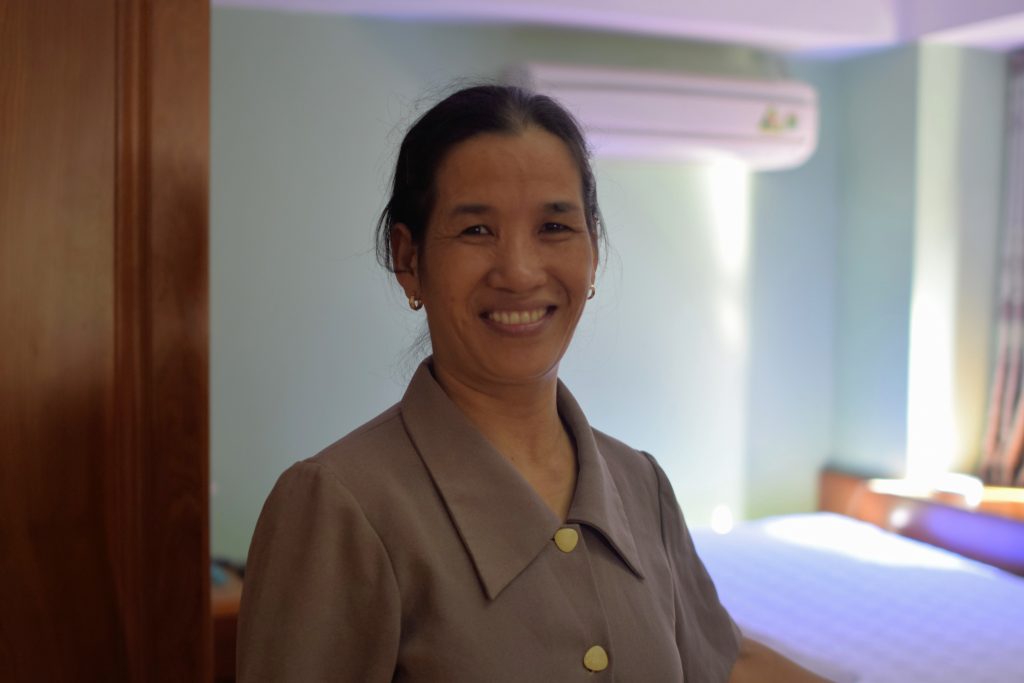
Despite the best efforts of my teachers, classmates, and the students who try to practice with me, I am definitely not the language learner I used to be. Learning Spanish and Portuguese in my 20s was not easy either, but it was not impossible. Vietnamese is another story. Sure, if I devoted my entire time here to learning, for the next ten years, maybe I would be able to speak in complete sentences. I am becoming more and more convinced that hard work really does pay off, but it really is true that as the brain ages languages become much more difficult to acquire.
Here is what I’m up against.
Six tones. Most words are one syllable in Vietnamese, and each word has a tone. Some seem simple, like the rising up tone, where you simply make your voice go up as you say the word. Others are mind-boggling, like the tone that is symbolized like a question mark – raise your voice, then quickly lower it, all in one syllable. Or the tone that is like this: ~ up, down, up! Say the wrong tone and you will be saying a completely different word, sometimes an inappropriate one.
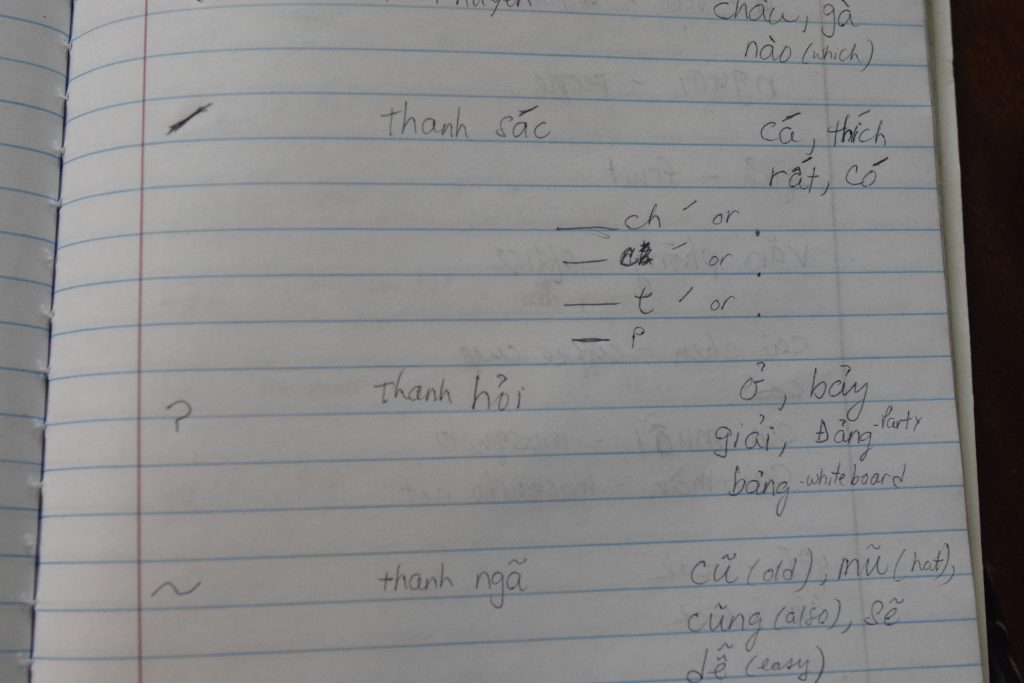
So many symbols. Vietnamese uses the Latin alphabet (although there used to be characters based on Chinese writing), but there are so many symbols above and below each word that I’m still just trying to decode it. Most vowels have symbols above them or attached to them, to indicate the correct vowel sound. Some of the sounds do not exist in English. Besides the vowel symbols, there are the symbols for each tone.
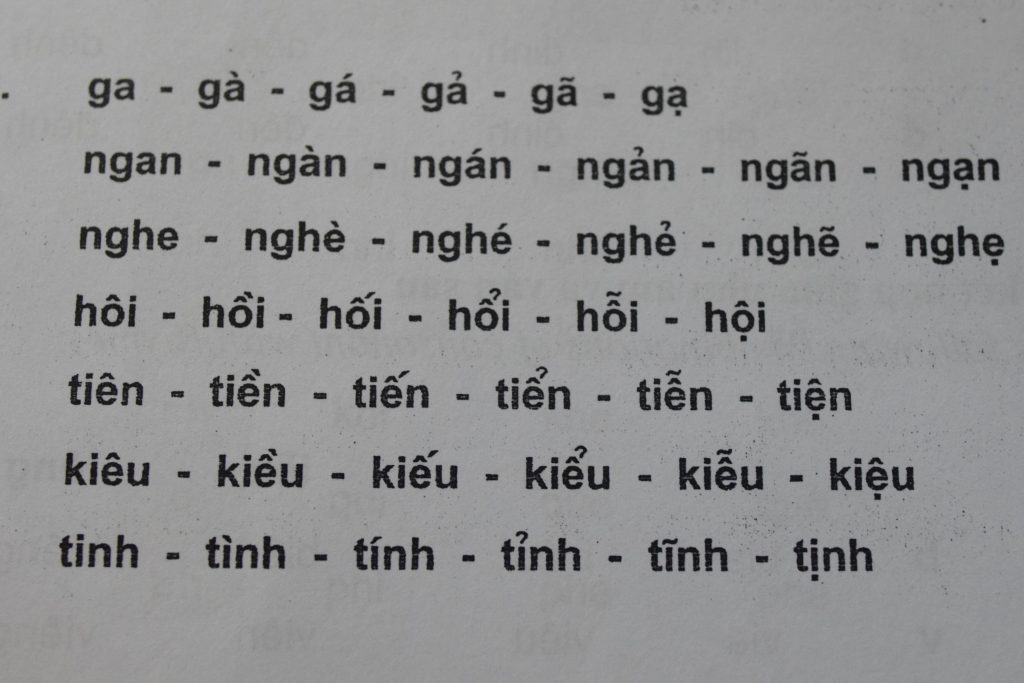
Pronouns and politeness. There are so many ways to say pronouns like “I” and “you” that I can’t count them all. It all depends on how well you know the person, their gender, and their age in relation to you. One website I found is titled, “Learn how to say hi in Vietnamese in 10 easy steps.” You need to know all the steps, because the words change with each person you meet!
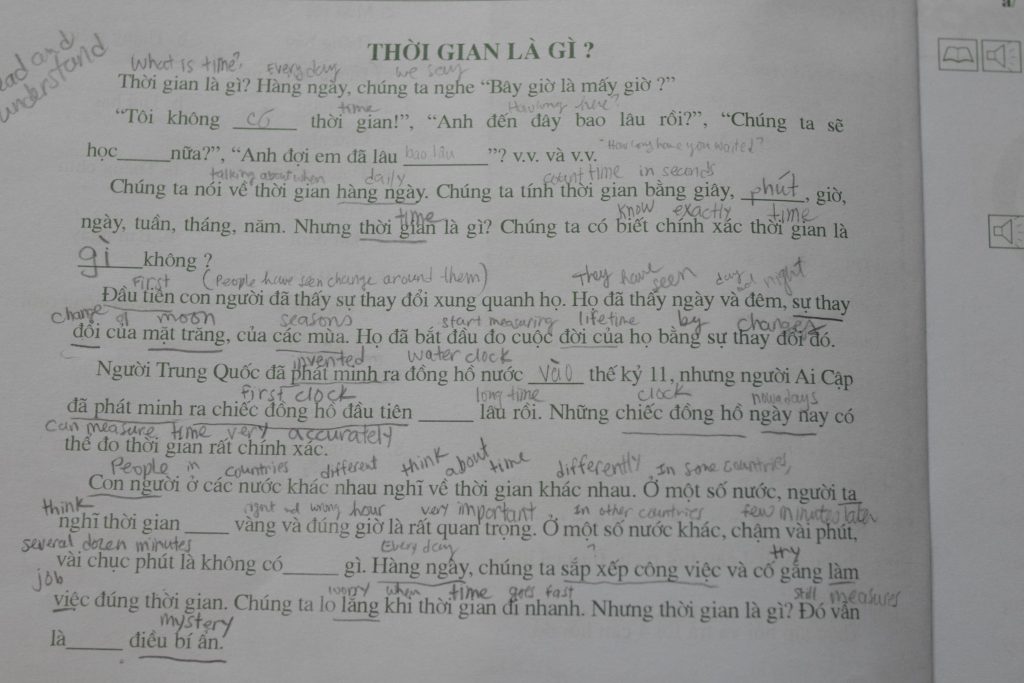
Nothing to connect to. When I learned Spanish and Portuguese, I could at least see some words that looked familiar to their English counterparts. In Vietnamese, there is absolutely nothing – the words look and sound unlike anything I’ve ever encountered. Well, there is one word for a certain beverage I see advertised everywhere that I do recognize: “bia.” It was borrowed from the French.
Multiple meanings. I try to decipher my homework by using Google Translate. It can help, but words have so many different meanings that it often gets it wrong. Words change meaning depending on what word comes before and after; since nearly everything is one syllable, several words can be used to refer to a single thing.
There is some good news. There are no verb tenses in Vietnamese. There are many, many words to indicate when something happens, but the verbs stay the same.
I would say that not speaking the language is the most difficult part of being here. It can be very frustrating, but it’s also hard because I know I am missing out on so much by not understanding. I’ll keep trying to learn and maybe will be able to say a few more phrases before I leave. Still, my struggles with the language help me appreciate even more that my students are not just speaking English, but writing poems in English.
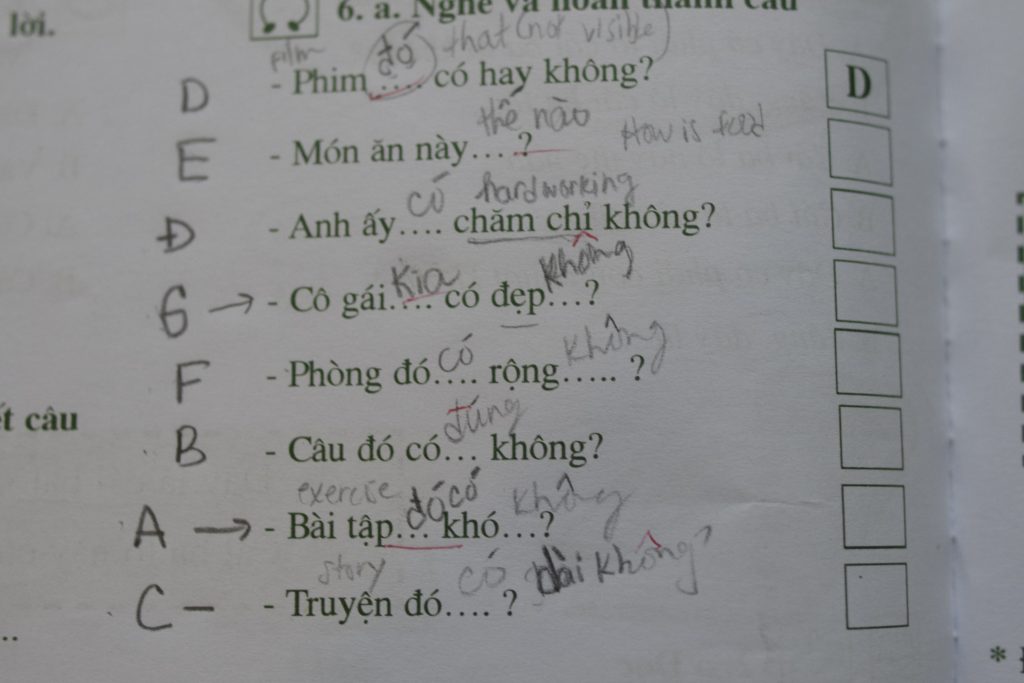
So now when people ask me how my Vietnamese is going, I remind them that I’m really just learning “about” Vietnamese, not actually learning it. If I lower everyone’s expectations, maybe they’ll be impressed when I say things like, “Today, ten hour I go.”

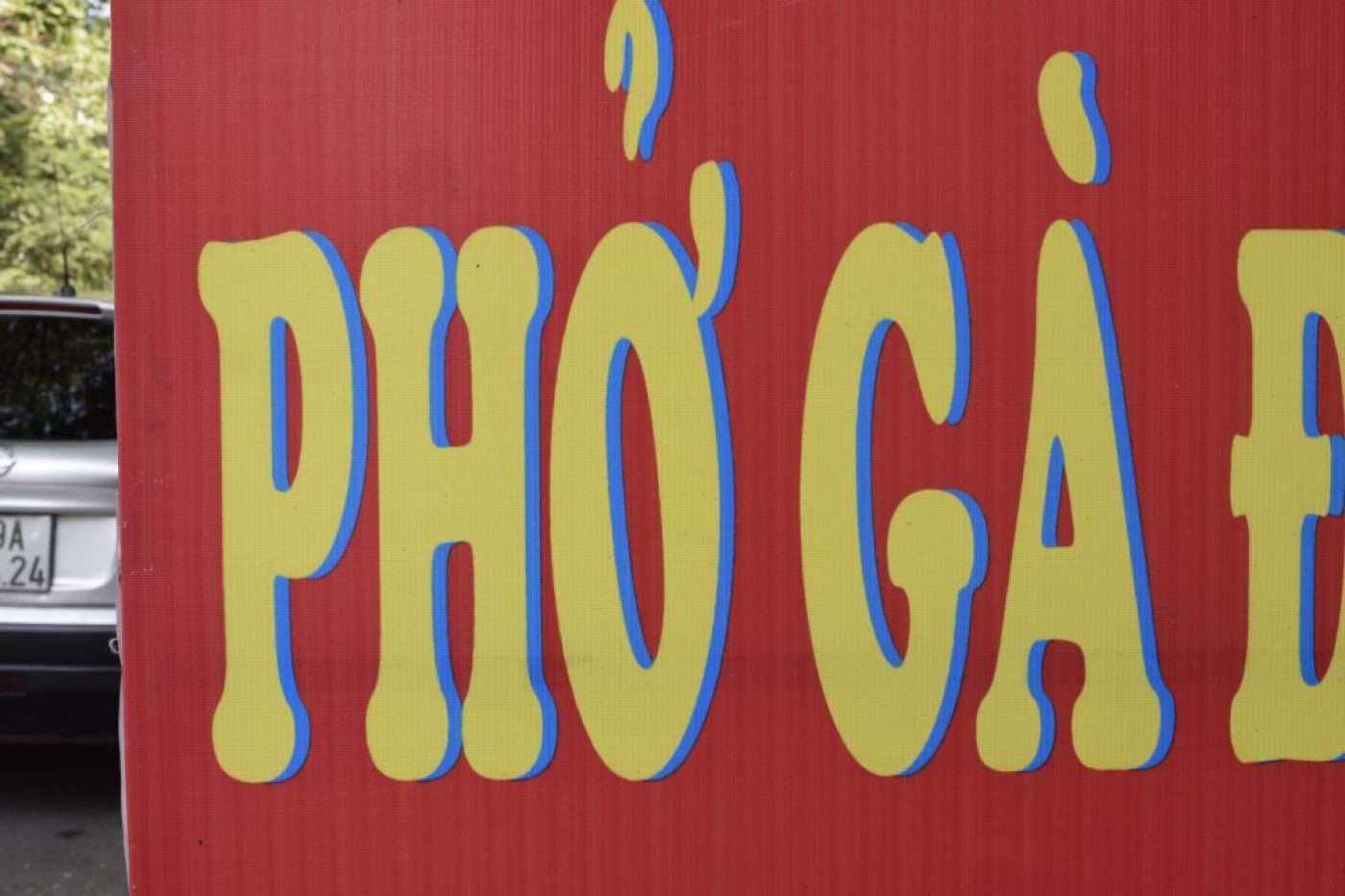
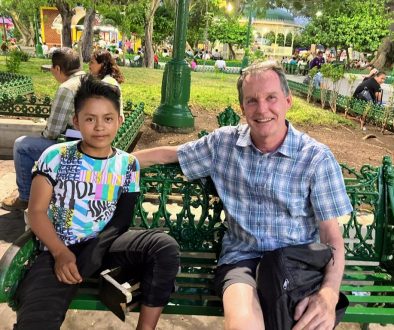


November 7, 2016 @ 03:12
I can relate so much! I am here in a similar predicament wishing I could understand it all – specially when I observed the demonstration and people were talking to me. These languages are hard – the decoding is fine, it is the speaking that is difficult and yes, you are correct – I wish we had the time.
Loved your entry! Be well and anyon from Seoul. Monica
November 13, 2016 @ 08:33
Thank you, Monica.
November 7, 2016 @ 04:58
Um, I would be so lost!! Something you can relate to…..1/2 day, then parent teacher conferences and a PD day Tuesday…….and holiday Friday. Lots of learning this week. Oh, and the election!!! Take care!
November 13, 2016 @ 08:34
I’ll be working on Thanksgiving and Christmas here – no holidays until the lunar new year in January!
November 7, 2016 @ 06:16
When I visited Korea I learned to say hello and thank you. When I tried to learn “goodbye” I discovered there were many: a goodbye if I’m leaving and you are staying, a goodbye if you are leaving and I am staying, a goodbye for we are leaving and going separate ways………I quickly decided to give up but remain proud of my small achievements of hello’s and thank you’s !!
November 13, 2016 @ 08:35
Yes, those small achievements are a big deal!
November 7, 2016 @ 06:55
I’m sure you are going to be missing PD in English today, Tim! Keep up the inspiring work……I know you’ll be successful!!!
November 7, 2016 @ 16:27
You have explained the nuances of learning a language so well! Even though I have not heard Vietnamese, I get a good idea of what you are talking about. I have been facing somewhat similar challenges of trying to pick up Kannada (I have not gone about it as systematically as you though!) which is a language from the south of India, being from the east of India and not having words I can relate to, and having consonants that are almost impossible to sound out for me!
November 7, 2016 @ 20:32
Sounds very difficult. I do not think I would able to learn this language. Glad you were able to converse with the maid. Good luck Tim.
November 13, 2016 @ 08:36
Thank you, Linda.